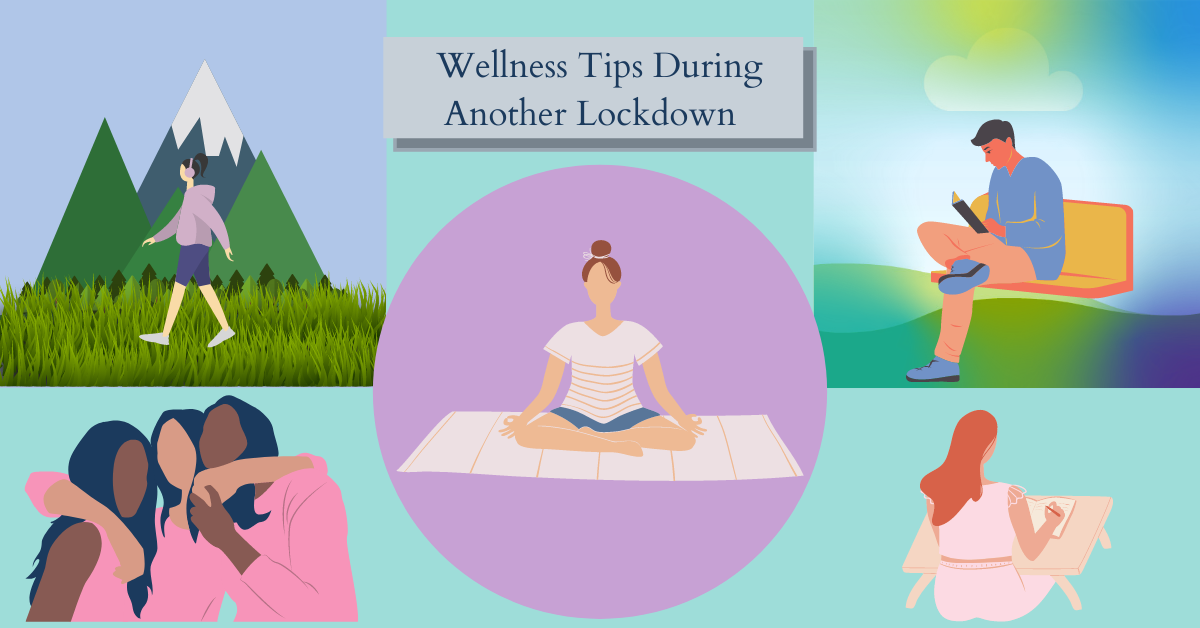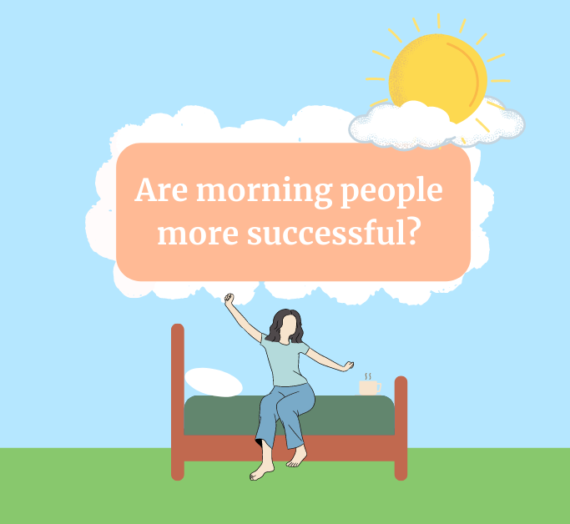From the first lockdown in March 2020 to a second wave in October, none of us expected to be in the same position in 2021. This past year has tested everyone’s mental health. Even those with the strongest mentality have suffered during this pandemic as an upset in routine, human connection, and doing what makes us happy has been taken away from all of us.
We are constantly bombarded with negative news at the minute, and many people are finding themselves with lower levels of wellbeing. It is more important now than ever to take care of yourself and your mind.
In this blog post, I am going to discuss:
- Mental health awareness,
- Gain advice from a wellness expert,
- Discuss available resources,
- Finish with useful tips for those who may be struggling.
Disclaimer: This blog post is aimed at anyone seeking information on mental health, wanting to improve their wellbeing, or seeking advice. I am not a medical professional, so if you have mental health concerns, please contact a doctor, therapist, or a helpline.
Mental health Awareness
From a young age, we aren’t taught about how to manage our wellbeing, or how to identify potential mental health triggers. This is shocking, considering your mind is the one thing you live with every day, regardless of any external factors.
The stigma around mental health often comes from a lack of understanding passed down from previous generations. In recent years, people have opened up the conversation about mental health and have raised awareness online. The emergence of pages such as Mentalhealthydeclan, Mental Health Ireland, Let’s Talk Mental Health, Mental Health Mates, Men’s Aid Ireland on Instagram and seeing so many people fundraising for mental health charities has been an inspiring development in society.
Although it may seem daunting at first, opening up and talking about your mental health is so important, especially at the minute. Joining groups or following mental health and wellbeing pages may help start a conversation for anyone who is struggling to open up.
Brenda Hardy

A couple of months ago, I came across the ‘Thrive After Lockdown’ course on Facebook. A local woman called Brenda Hardy, Physiotherapist, and founder of ‘Health Connects’ in Portglenone, created an 8-week programme to help those who were struggling throughout the second lockdown.
This course included nutrition advice, meditation classes, journaling, suicide prevention, brain health, sleep, finance management, pilates, yoga, pelvic health education, and much more. This course was entirely free, funded by the PHA.
I was lucky enough to organise a phone call with Brenda to gain a better understanding of what causes lower levels of wellbeing and how we can improve this.
Social media and mental health
Firstly, Brenda discussed the correlation between social media and mental health. At a time where we are more isolated than ever, there has been an upsurge in social media usage.
Brenda explained that social media can negatively impact many mental health issues as “we live in an era of ego, comparison, and perfectionism”. She believes this contributes to many mental health issues.
Social media is a highlight realm, so the first step Brenda advised is to unfollow anyone who is impacting you negatively and replace them with pages that inspire you. The next step is to take time away from our phones and be mindful of how often we use social media. Try setting timers/ enabling sleep mode on your phone or read, ‘How To Break Up With Your Phone’, if you’re struggling with that first step.
After a few days of doing this, we can aim to be more present in our daily lives and less consumed by comparison.
Furthermore, education on mental health needs to begin at a young age, as your subconscious cannot distinguish what we are seeing online from real life. Continuously spending time on social media can take a detrimental toll on people’s mental health, as I talked about in my previous post, ‘Take Everything You See Online With a Pinch of Salt’.
Many of us were not lucky enough to receive mental health education when we were younger. We can change the rhetoric by being more open and honest with the younger generation, instilling education at an earlier stage.
Addressing the root cause

Secondly, Brenda addressed how important it is to get to the root cause of our ailments.
Our anxiety could be triggered by not sleeping enough at night, having a highly stressful job, or drinking too much alcohol. Being mindful of our lifestyle and journaling what may be triggering a fluctuation in our wellbeing can be useful for increasing self-awareness and tackling the root cause.
Brenda added how modern society encourages people to find a ‘quick fix’, avoiding addressing the root cause of what they’re going through. She explained how the body is one entire unit, everything from our mental state, to our physical mobility and internal system is connected. When addressing our mental wellbeing, we must address several aspects of our lifestyle.
How can we do this?
- Go inward- meditate, be mindful of your lifestyle, journal your thoughts/ habits.
- Attend courses- Brenda created, ‘Thrive after lockdown’. I’d urge you to look in your local area to see if there are any similar programmes available.
After chatting with Brenda, she left me with some great advice and tips to share on this page. I have also included some podcasts and TV show recommendations. I’ve found that they increase my awareness and understanding of mental health and wellbeing.
Ways to improve our daily wellbeing
- Reduce your time spent watching the news.
- Try unfollowing influencers/ celebrities who have an unrealistic image on social media, start following pages that help you instead.
- Reduce your time on social media.
- Start doing Beginners Yoga, even 10- 20 minutes a couple of times a week.
- Begin meditating.
- Listen to podcasts.
- Go for long walks.
- Read some self-help books.
- Call a friend.
- Talk to a professional.
- Ring a helpline.
- Get rest.
- Practice mindfulness- download the ‘Calm’ or ‘Headspace’ app.
- Reduce stress.
- Visit your doctor.
- Go to therapy (counseling funded by the NHS is still in-person as it’s an essential service).
- Practice breathwork.
- Try Pilates.
- Exercise in any way that makes you feel good.
- Adjust your Lifestyle- remove the things that are impacting you negatively.
How can I become more informed?

If I could recommend people to watch one thing, it would be ‘The Mind: Explained’ on Netflix. I’ve watched every ‘Explained’ episode, purely because it’s a great way to understand topics when you’re short on time. ‘The Mind’ series gives such an excellent summary of how the mind works.
- ‘Explained: The Mind’- the episodes on ‘Anxiety’ and ‘Mindfulness’ are particularly useful.
- ‘Explained: Coronavirus’- ‘How to Cope’ episode.
- Download the Calm or Headspace app.
- Follow some holistic medicine specialists on social media such as: Dr. Joe Dispenza, Razi Berry, or Dr. Steven Lin.
Podcast Recommendations
- ‘On Purpose’ with Jay Shetty
- Eckhart Tolle
- ‘Happy Place’ by Fearne Cotton
- ‘The Daily Pep’ by Meg Kissack- great little 5-10 mins podcasts when you’re short on time.
- The Headfirst Podcast
- Owning it: The Anxiety Podcast
- Daily Mindfulness- great 10-minute podcast for walking
You can find all of these podcasts on Spotify and there’s lots of meditation playlists too. It might be a good idea to check these ones out before paying for a meditation app subscription!
I want to give a massive thanks to Brenda Hardy for chatting with me about wellbeing and sharing some tips from her professional experience. It’s amazing to see so many people benefit from her fantastic work. This post took me far longer than it should have (because I am the world’s biggest procrastinator), but I couldn’t have done it without her advice. If this helps even one person, then I’d like to think we spent our time chatting wisely.
Lastly, of course, not everyone will be able to address their mental health holistically like I have discussed above. Many people will need forms of medication, which is often a taboo topic. This is completely up to a medical professional’s opinion along with the choice of the individual. No one should feel any shame if they have to go on medication and continue staying on it. If this is something you’re considering as you’ve tried all the above steps and aren’t making further progress, please don’t hesitate in going to your GP. There is no shame in getting medicinal help.
If anyone is struggling, please reach out to a close family, friend, or therapist/ helpline. This is a really difficult time for many people, and you should never feel like you’re going through it alone. If anyone wants a chat or needs a list of services you can turn to, don’t hesitate to send me a message.
Thanks for reading,
Eilis x




